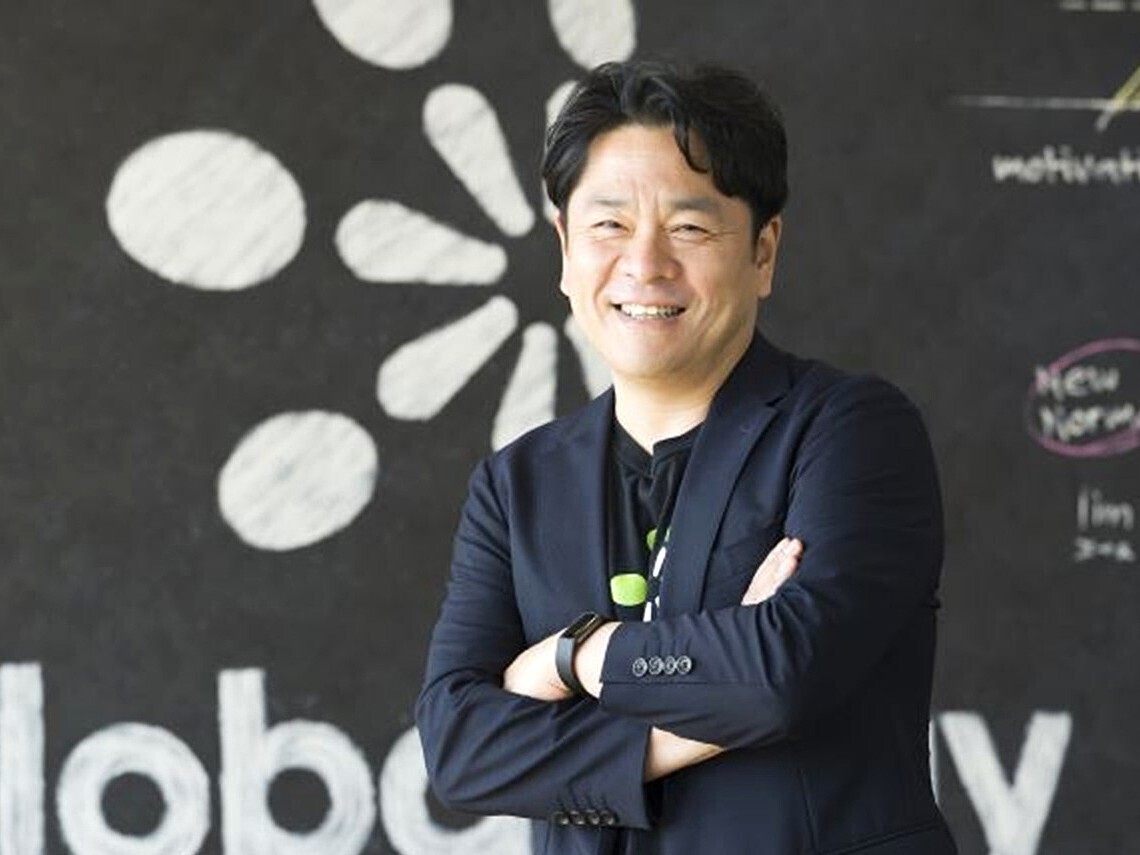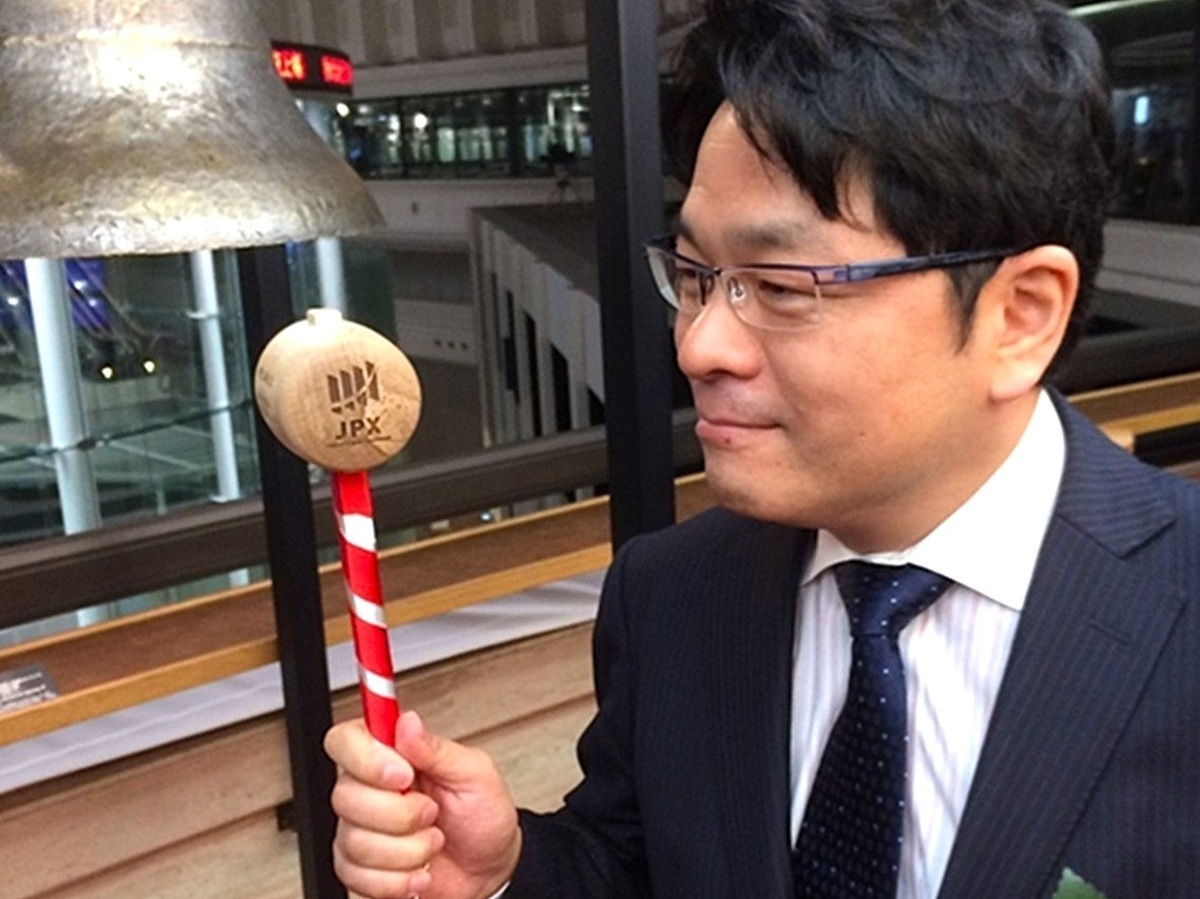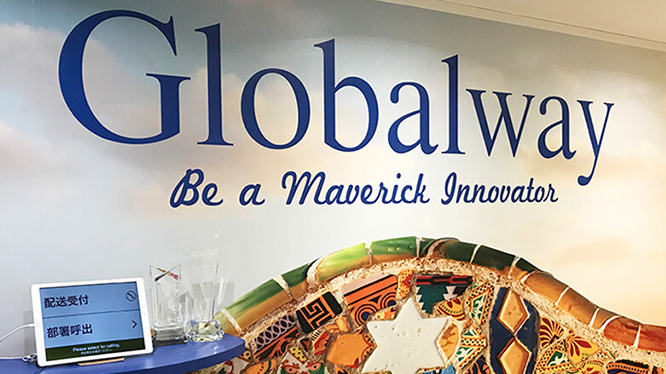
Globalway is an innovative company with the mission of "People and Technology for a New Era". Since its initial public offering (IPO) on the Tokyo Stock Exchange (TSE) in 2016, the company has grown to employ over 200 staff and generated revenues of over 3 billion yen in 2024.
■About Masato Kakamu, the CEO of Globalway & TimeTicket
Masato Kakamu (born 1973) is the founder and CEO of Globalway as well as the CEO of TimeTicket. After graduating from the University of Washington's School of Business in the USA, he worked for UBS and Deutsche Bank. He then joined WebMethods, where he achieved world-leading sales figures. He founded Globalway in 2005, leading the company to its listing on the TSE Mothers (now Growth) market in 2016. Since becoming chairman of Globalway in 2020, Masato invested around 1.3 billion yen in the group company, TimeTicket, and got several new businesses off the ground. In June 2025, he returned as the CEO of Globalway. On a personal level, he is passionate about angel and equity investments.
Off to the USA
When I was a little boy, I was crazy about baseball. At junior high school, I was the third batter and captain of our team. We won the prefectural championship. I then decided to attend a private boarding school on a baseball scholarship, as my dream was to play in the National High School Baseball Championship. However, this dream did not come true.
Both my father and grandfather were business owners, so I decided to switch my dream to becoming an entrepreneur. However, I did not know where to start. Then one day, I remembered the biography of Hideyo Noguchi that I had read as a child, and I decided to go to the US to explore my options. This was around the time that companies like Microsoft and Dell were emerging.
I decided that starting an IT company would be a good idea, so I went to the University of Washington's School of Business to study finance and computers. Initially, I had to devote almost all my time to studying. Once I had settled into my routine, I wanted to save money for my future business, so I started exporting used clothing to Japan on a small scale.
Learning business the hard way
After graduating from university, I joined UBS as an engineer, responsible for developing and operating high-speed trading systems. I then went to work for Deutsche Bank as a trader.
When I was 27, I heard that WebMethods, which was later acquired by IBM, was launching a Japanese subsidiary, so I returned to Japan to take on a sales and marketing role. I soon became the top salesperson worldwide, selling software worth tens to millions of yen to major companies. By the time I was 30, my salary had increased to 75 million yen.
However, my smooth sailing came to an end with a life-changing event: I ended up in hospital with a high fever caused by a serious bacterial infection. Prior to this, I had forced myself to go on business trips overseas despite my lack of sleep and poor health. I was horrified when the doctor told me that he almost had to amputate my leg. This incident made me realise how important it is to look after my body and health if I am to fulfil my potential.
It was around this time that I had the idea for the company review site “Career Connection”. While working for the foreign-owned companies, I noticed the differences in work culture between Japanese and Western companies.
While studying in the US, I was inspired by people who worked hard to achieve their dreams, regardless of race, background or age. While corporate Japan provides a sense of security, the system does not allow for individual empowerment, which creates a lot of stress for workers.
IPO and reverse roadmap
When I finally had enough money, I felt ready for a challenge and started my own business in 2005. However, people around me were very sceptical about my decision, saying, “You must be crazy to give up such a well-paid job.”
In fact, I worked unpaid for the first year. I was surprised at how quickly my savings dwindled, but I stuck to my plan: to start a business by the time I was 30 and to make an impact on society by the time I was 40.
The company's name, Globalway, reflects its ambition to 'Pave the Way to the World'. I have adopted the best aspects of the meritocratic practices observed in foreign companies, and have actively recruited foreign employees.
Then, in 2016, at the age of 43, the company was listed on the Mothers market of the Tokyo Stock Exchange. This achievement would not have been possible without the support of our business partners and employees.
The second founding phase
Globalway has developed its business around two pillars: the IT consulting business and the recruitment business.
The IT consulting business provides IT consultancy and platform development support. The recruitment business consists of “Globalway Agent”, a recruitment agent, and “Career Connection”, a company review website.
After going public, the company faced new challenges as it grew. Although our turnover was increasing, additional challenges were created because our business strategies, organisational structure, and required skills were constantly changing. The problems piled up to a level that I could not solve alone.
In order to develop the company during its second founding phase and to hire and train a young workforce for the next generation, I asked Mr Yoshikazu Koyama, who had moved to a consultancy firm, to take the helm in November 2020, at which point I became Chairman.
Around the same time, I started devoting more time and resources to TimeTicket, a Globalway group company, having personally invested 1.3 billion yen. TimeTicket launched a cryptocurrency business in 2022, pushing Globalway's market capitalisation to 70 billion yen at that time.
TimeTicket has a platform called “TimeTicket” that connects people looking for skilled talent with those who can provide it. “TimeTicket” is a pioneer in Japan's skill-sharing sector. Since its spin-off from Globalway in 2019, it has grown its user base by leveraging synergies with Globalway and now has one million users.
TimeTicket’s new businesses
In 2023, TimeTicket launched two new businesses: a live streaming business and a consulting business.
TimeTicket Production is a TikTok agency. We currently have over a thousand live streamers and our agency is growing by more than 100 creators every month. In April 2025, our agency received the 'Premium TikTok Agency' award. I also live stream on TikTok as part of the group “SirenVibes & Kakamucho”, which has over 65.5k followers.
Cript Consulting specialises in strategic business consultancy. Having grown to a team of 30, it has provided services to several major companies and leading local authorities. The team is currently extremely busy keeping up with the demand.
As these new businesses have grown, TimeTicket has achieved its long-held goal of becoming profitable in the 2025 financial year. Meanwhile, Globalway has grown steadily over the past three years, increasing its consolidated sales from around ¥1 billion to over ¥3 billion, and expanding its workforce to more than 200 people.
I made a decision to return to my position as CEO of Globalway in June 2025. The previous CEO, Mr Koyama, will support me in my new role as General Manager of Corporate Planning, taking on a more active role in the business. Our mission is to ensure the profitability of both Globalway and TimeTicket, both on a non-consolidated and a consolidated basis.
Our key strategies are to transform existing businesses using AI technology and to collaborate and maximize synergies with TimeTicket. In the recruitment and IT consulting business, we plan to use AI technology to improve candidate matching and automate and improve consulting work.
Global expansion and the next generation
Globalway's mission is to enrich the lives of working professionals, while TimeTicket's goal is to celebrate individuality and diverse lifestyles. The two businesses have one thing in common: they support people around the world in leading vibrant lives.
My goal is to create a business that is loved by a billion people rather than simply having lots of users. The focus should be on building a business that brings happiness to many people.
To achieve the above, the plan is to increase the number of Globalway group companies worldwide. TimeTicket is already expanding its business overseas, particularly in Asia. By keeping a close eye on technological and social trends, we aim to provide services that are both socially meaningful and loved.
Another important initiative is nurturing the next generation of entrepreneurs and managers. I intend to promote positive change by investing in and supporting entrepreneurs who share my aspirations and who can guide society in the right direction.
Taking on challenges to make a difference to the world
My motto is “Be a Maverick Innovator”. This was also Globalway's corporate mission after the company’s listing. I will always value the entrepreneurial spirit and out-of-the-box thinking that drives the creation of new services and businesses.
Antoni Gaudí, the Spanish architect whose work I admire, epitomises this spirit. He left behind many highly original architectural creations, including the Sagrada Família (Church of the Holy Family), which he worked on for his entire life. Since his death, the next generation of craftsmen have faithfully continued his work.
My goal is to establish a sustainable business that will enable future generations to build on my work. As the world is constantly evolving, I wish to contribute to this ongoing change by creating opportunities as well as supporting other creators who promote change.
Related links
Globalway
Globalway technical services (e.g. IT consulting)
Career Connection: one of the largest corporate review sites in Japan
Career Connection News: news for workers
Globalway Agent: high-class recruitment agent
TimeTicket
TimeTicket: sharing economy service that connects people looking for skilled talent with those who can provide it
TimeTicket Production: official TikTok live streaming agency
Cript Consulting: consulting business
GameTomodachi: matching service for gamers



















上場企業の四半期決算から、面接で差がつく「志望動機」や「逆質問」のヒントを導き出す専門チーム。3ヶ月ごとの業績推移と戦略の遂行状況をキャリコネ独自の現場データと照合し、求人票だけでは見えない企業の「現在地」を可視化します。投資家向け情報を、転職希望者が選考を有利に進めるための武器に変える、実戦的な企業研究を配信中。